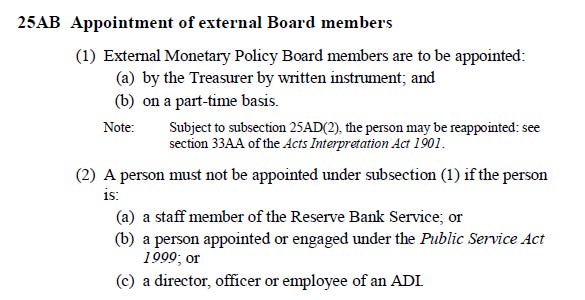The path is now open for Jim Chalmers to stack the RBA board. So called “reforms” to the RBA board have now passed with the support of the Greens.
In the final parliamentary sitting day of 2024, the government rammed through a slew of more than 30 Bills. Quite how a bill could be scrutinized in the space of 15 minutes is unclear. But, nevertheless, the ALP persisted. Amongst this charade of a democratic process, was a bill to change the RBA board.
The Bill effectively splits the RBA’s board into a ‘governance board’ and a ‘monetary policy board’, the latter of which sets interest rates. Both the monetary policy board and the governance board have nine members: three from the RBA and six external members. The treasurer appoints those six external members.
This is a significant concern. Currently, the RBA has six external appointees. Four are coalition appointments; two are Labor appointments. Those two are former union officials. With the changes, Jim Chalmers can appoint another six RBA members, bringing the number of labor-aligned appointments to eight. This effectively allows Jim Chalmers to stack the RBA boards and exert control over at least one of the RBA boards. That control is implicit: he cannot explicitly direct the board, but can appoint ideological travelers that he is sure will act in the same way he will act.
The problem is obvious: the treasurer can appoint apparatchiks. And, even if you like Jim Chalmers, do you then trust the Coalition to make better appointments when it is in power?
The clear fear is that this is an attempt to procure a compliant RBA before the election. After all, Labor hopes for a rate cut before the next federal election. Jim Chalmers has repeatedly made misleading statements about inflation, which the ABS’s own inflation reports contradict. Specifically, the ABS has noted that the reason headline inflation appears low is because of temporary energy subsidies, which will not persist, whereupon inflation will mechanically spring back.
How then could this be improved? Well, an appropriate vetting process could help. This could involve candidates being approved in the Senate, akin to how cabinet positions are approved in the US. This could reduce party-political appointments by forcing the treasurer’s picks to secure broader support. However, such changes are unlikely to occur. After all, when the opposition becomes the government, it too will seek to redress the balance.



